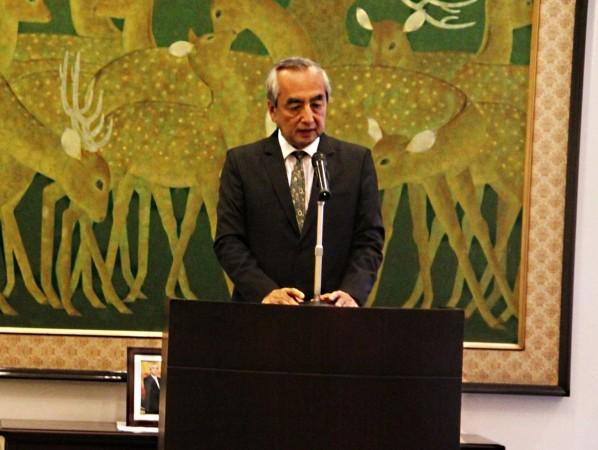Japan on Thursday, August 17, threw its weight behind India in its standoff with China over the Doklam region. This, even as China once again resorted to reminding India of its defeat in the 1962 war, a move probably to get it to back off from an area that is Bhutan's but China claims as its own.
China has already scaled down its high-pitched rhetoric on the standoff, from when it had issued threats to India like entering Kashmir.
Now, Beijing reverting to its older intimidation tactic of raking up the 1962 war could be an indication of it running out of ideas to implement its salami tactics in Doklam.
Japan supports India
Japanese Ambassador to India Kenji Hiramatsu on Thursday followed the US in weighing in on the Doklam standoff, and while the US had called for dialogue, Hiramitsu leaned towards India.

"We understand that the standoff in the Doklam area has been ongoing for nearly two months. As it can affect the stability of the entire region, we have been watching the situation very closely," he said, adding: "We also understand that India has a treaty understanding with Bhutan, that's why Indian troops got involved in the area."
However, it is this statement of his that showed he -- and by extension his country -- did not support China in the standoff: "What is important in disputed areas is that all parties involved do not resort to unilateral attempts to change the status quo by force, and resolve the dispute in a peaceful manner."
China rakes up old muck
China, meanwhile, on Friday chose to hark back to the 1962 war to remind India of a defeat that the country has long overcome -- something Defence Minister Arun Jaitley himself has said.
The state-controlled Global Times on Friday published an Op-Ed piece that was an interview with British journalist Neville Maxwell, who wrote the widely-acclaimed analysis India's China War on the 1962 confrontation between the two countries.
While the headline claims "India haunted by innocent victim mentality," the interview has only the Global Times asking Maxwell a question on it, that too based on one of his observations from the 1970 book.

Maxwell, on his part, claims that India harbours bitterness from the 1962 defeat. He says: "And from that bitterness comes a hankering or wish for revenge. That is a very dangerous habit in the Indian political structure."
This is the same person who had in the 1960s predicted that India's democracy would not last long. While some may argue that there was indeed a period of Emergency in the 1970s, they would have to admit that other than that period, India has continued to be a democracy while China remains a one-party state governed by a regime whose ideologies have failed almost everywhere across the world.















